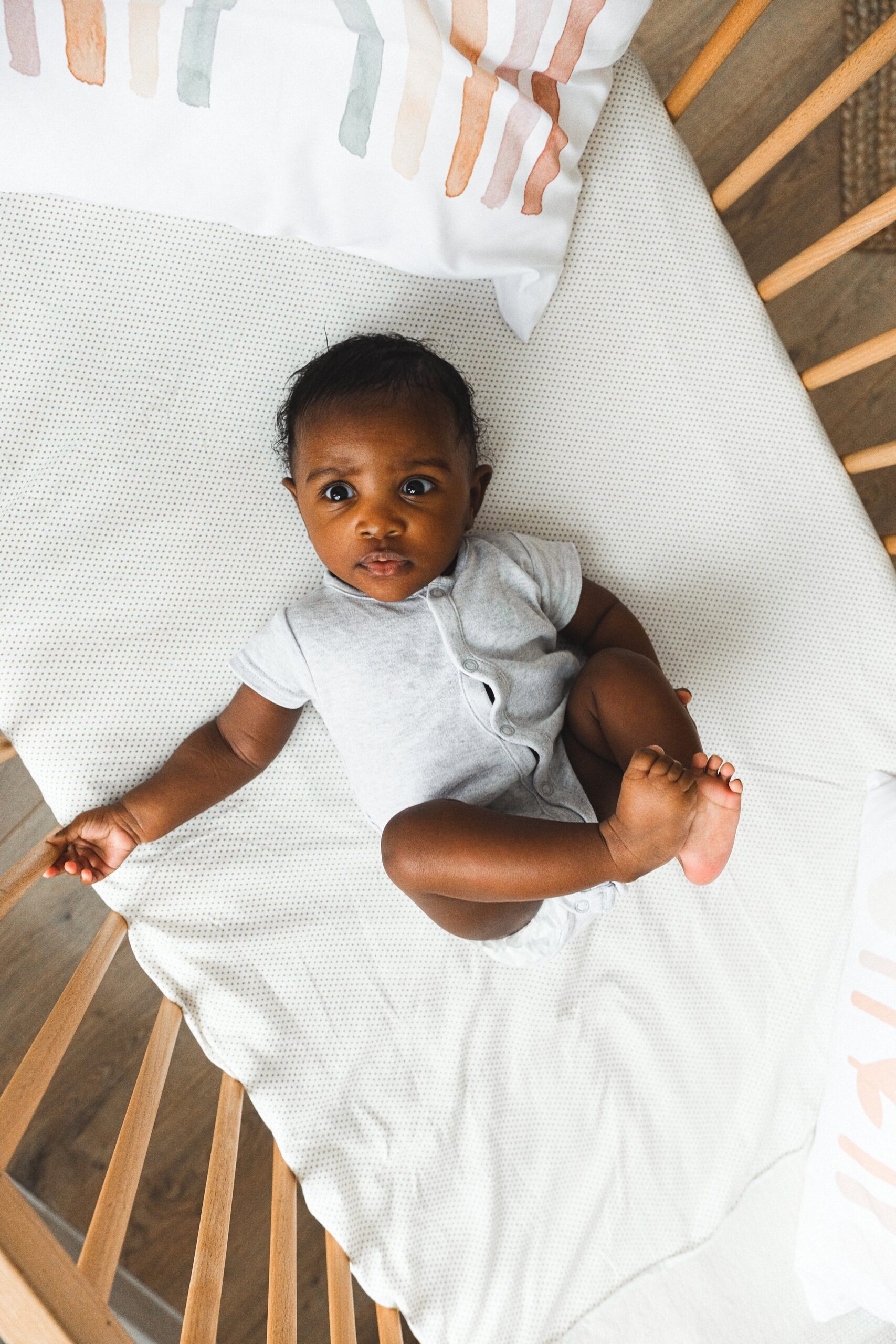in this post:
Whether you’re welcoming a new babe soon or they’ve recently arrived, figuring out your infant’s sleep is a top priority for many parents. Having a newborn can be so sweet and blissful, however, it can also bring sleepless nights and lots of anxiety. Many parents find they haven’t really thought much about supporting sleep for their newborn which can lead to frustration and feelings of failure. Been there!
To help you navigate this phase, we have compiled a list of gentle, evidence-based newborn sleep tips. These strategies aim to foster better sleep habits for your baby, ensuring restful nights for both of you.
Understanding Newborn Sleep Patterns
Newborns have unique sleep cycles that differ significantly from older children and adults. Understanding these patterns is crucial for developing effective sleep strategies:
-
Short Sleep Cycles: Newborns typically sleep in short bursts of 2-4 hours between feeds, as they need to feed frequently due to their small stomachs. These feeds may get closer together in the late afternoon and evening hours, called cluster feedings. Naps for newborns are all over the map- they may snooze for 15 minutes or 3 hours. That’s normal!
-
Active and Quiet Sleep: Newborn sleep alternates between active (REM) sleep, where they may move and make noises, and quiet (non-REM) sleep, which is deeper and more restful. Sometimes parents think their newborn is waking up when they start squirming around but they’re actually transitioning to a new sleep cycle! Taking a moment to pause before you respond and pick up your baby can help them settle into a new sleep cycle on their own.
.
.
.
When to Seek Professional Help
If your baby consistently has trouble sleeping despite following these tips, it might be beneficial to consult with a pediatrician or a pediatric sleep specialist. Persistent sleep issues could indicate underlying health concerns that need professional attention. Our team works with families worldwide and we can help you figure this out!
.
things to remember
Implementing these gentle, evidence-based sleep tips can help create a peaceful sleeping environment for your newborn, fostering healthy sleep habits from the start. Remember, every baby is unique, and what works for one may not work for another. Patience and consistency are key as you find the best strategies that suit your little one’s needs.


